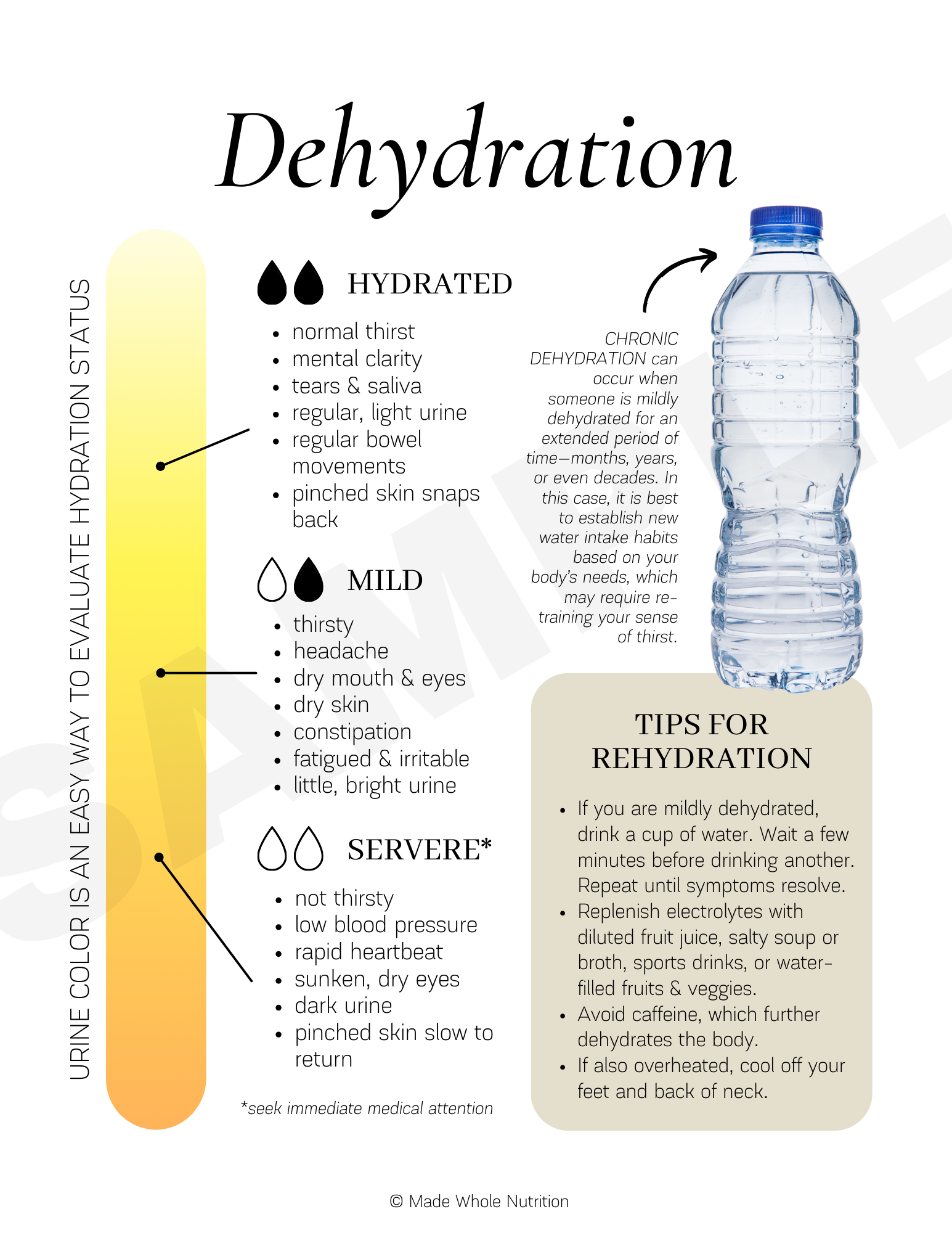13 Signs of DEHYDRATION (and how to rehydrate)
HYDRATION SPECTRUM
HYDRATED
normal thirst
mental clarity
tears & saliva
regular bowel movements
pinched skin snaps back
regular, light urine*
MILD DEHYDRATION
thirsty
headache
dry mouth & eyes
dry skin
constipation
fatigued & irritable
little, bright urine*
SERVERE DEHYDRATION
seek immediate medical attention
not thirsty
low blood pressure
rapid heartbeat
sunken, dry eyes
pinched skin slow to return
dark urine*
*urine color is an easy way to assess dehydration status
TIPS FOR REHYDRATION
If you are mildly dehydrated, drink a cup of water. Wait a few minutes before drinking another. Repeat until symptoms resolve.
Replenish electrolytes with diluted fruit juice, salty soup or broth, sports drinks, or water-filled fruits & veggies.
If also overheated, cool off your feet and back of neck.
A NOTE ABOUT CHRONIC DEHYDRATION
Chronic dehydration can occur when someone is mildly dehydrated for an extended period of time—months, years, or even decades.
In this case, it is best to establish new water intake habits based on your body’s needs, which may require re-training your sense of thirst.
Are you a health educator that wants to use this content with your clients? Customize the handout template in less time than it would take to even think about hiring a graphic designer.
References
Weatherby, D. (2004). Signs and Symptoms Analysis from a Functional Perspective.Dehydration. NHS Database. Retrieved from: https://www.nhs.uk/conditions/dehydration/
Dehydration. Medline Plus. Retrieved from: https://medlineplus.gov/dehydration.html
Shaheen, N. A., Alqahtani, A. A., Assiri, H., Alkhodair, R., & Hussein, M. A. (2018). Public knowledge of dehydration and fluid intake practices: variation by participants' characteristics. BMC public health, 18(1), 1346. https://doi.org/10.1186/s12889-018-6252-5
Popkin, B. M., D'Anci, K. E., & Rosenberg, I. H. (2010). Water, hydration, and health. Nutrition reviews, 68(8), 439–458. https://doi.org/10.1111/j.1753-4887.2010.00304.x






